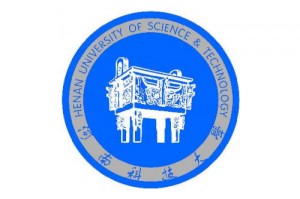 IT Sligo’s strategy of increasing its intake of international student has received a significant boost following the signing of a Memorandum of Understanding (MOU) between the Institute and Henan University of Science and Technology (HUST) in China.
IT Sligo’s strategy of increasing its intake of international student has received a significant boost following the signing of a Memorandum of Understanding (MOU) between the Institute and Henan University of Science and Technology (HUST) in China.
As a result of the agreement, future approval will be sought from the Ministry of Education in China for the delivery of an accredited IT Sligo-designed four year honours Bachelor degree programme, most likely in an applied science discipline, for HUST students. This would see 20 to 25 Chinese students participating in the programme on the basis of the first two years delivered at HUST and the final two years at IT Sligo, or alternatively three years at the local university with the final year spent on the Sligo campus. It is hoped that the first such programme will begin at HUST as early as this October.
“This MOU represents our first bilateral agreement with a Chinese higher education institution and is a significant first for IT Sligo as we seek to boost our internationalisation agenda”, said President of IT Sligo, Professor Terri Scott.
The announcement, which underlines IT Sligo’s commitment to the Government’s strategy of increasing international student intake nationally, comes in the wake of a 15 day visit to China on which IT Sligo was represented by Patrick Lynch. The trip coincided with a visit by Minister of State for Training and Skills Ciaran Cannon who was in China for St Patrick’s Day, in a bid to unlock the massive Chinese education market. Mr Lynch participated in a number of Education in Ireland events hosted by Minster Cannon in Beijing and used the opportunity to foster links with a significant number of trusted education recruitment agents there.
Mr Lynch travelled as a guest of the Henan Provincial Government and met with representatives of six other universities in the cities of Zhengzhou and Luoyang, with whom he is also hoping to collaborate in the near future.
“We believe we have a lot to offer the Chinese education market especially in the STEM (Science Technology Engineering and Maths) areas”, which we do so well at IT Sligo,” said Mr Lynch. “This agreement is an important step in our mission to increase our proportion of international students to seven per cent of all fulltime equivalents by 2015”, he added.
Sligo has already been blazing a trail in fostering links with China in the areas of trade, education, tourism and culture and just over a year ago Sligo County Council and the government of Henan province signed an agreement in Sligo formally establishing a sister relationship. In November 2011 the Institute welcomed a delegation from the Chinese Peoples Association of Friendship with Foreign Countries (CPAFFC), and during that visit an invitation was extended to visit HUST.
The MOU, which has been signed by the Presidents of both colleges, will facilitate the exchange of teaching and research between the two institutions. It is anticipated that the colleges will exchange students, graduates, lecturers, and visiting scholars each year. Exchange students and scholars will be liable for travel and living expenses while staying in the host institution. The agreement will be in place for five years.
Mr Lynch pointed out that China is ranked number two in terms of overseas education market value for Education in Ireland. “In Ireland we host the highest number of Chinese students on a per capita basis among all European countries,” Mr Lynch pointed out. “We in IT Sligo are gratified to have made this progress so quickly and we look forward to collaborating with a number of other Chinese universities in the near future.”
Following An Taoiseach Enda Kenny’s visit to China this week Ireland and China have confirmed they have established a strategic partnership for co-operation on a range of issues, including the areas of education, trade and investment, tourism, science, agriculture and food.
IT Sligo already has a number of Memorandums of Understanding with a range of institutions in USA, Korea, Canada, Malaysia and across Europe.